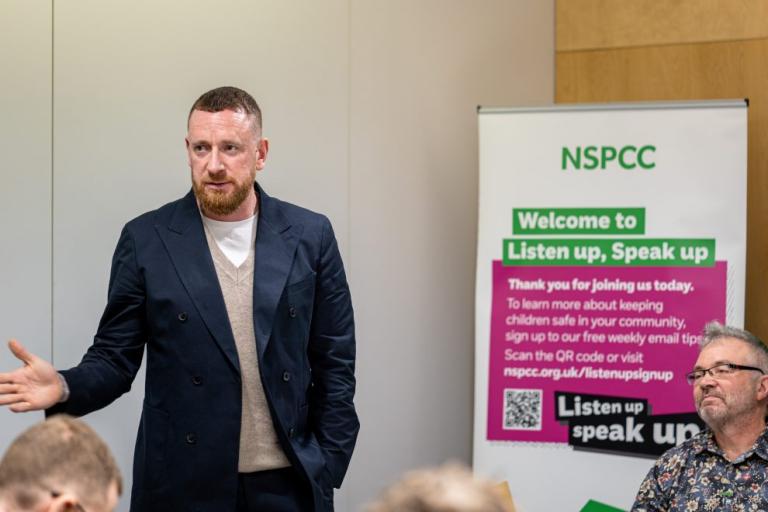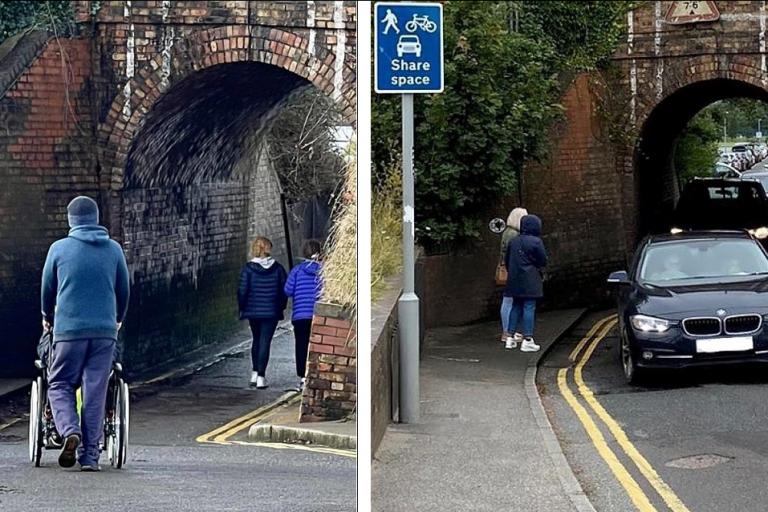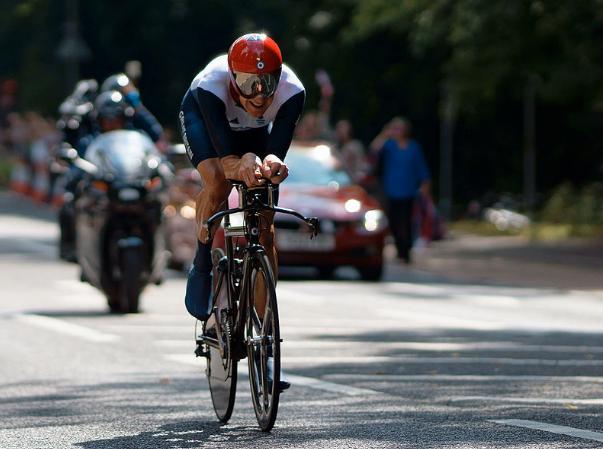- News
- Reviews
- Bikes
- Accessories
- Accessories - misc
- Computer mounts
- Bags
- Bar ends
- Bike bags & cases
- Bottle cages
- Bottles
- Cameras
- Car racks
- Child seats
- Computers
- Glasses
- GPS units
- Helmets
- Lights - front
- Lights - rear
- Lights - sets
- Locks
- Mirrors
- Mudguards
- Racks
- Pumps & CO2 inflators
- Puncture kits
- Reflectives
- Smart watches
- Stands and racks
- Trailers
- Clothing
- Components
- Bar tape & grips
- Bottom brackets
- Brake & gear cables
- Brake & STI levers
- Brake pads & spares
- Brakes
- Cassettes & freewheels
- Chains
- Chainsets & chainrings
- Derailleurs - front
- Derailleurs - rear
- Forks
- Gear levers & shifters
- Groupsets
- Handlebars & extensions
- Headsets
- Hubs
- Inner tubes
- Pedals
- Quick releases & skewers
- Saddles
- Seatposts
- Stems
- Wheels
- Tyres
- Health, fitness and nutrition
- Tools and workshop
- Miscellaneous
- Cross country mountain bikes
- Tubeless valves
- Buyers Guides
- Features
- Forum
- Recommends
- Podcast
news
Bradley Wiggins says he swept alleged child abuse “under the carpet”; Bike lane parking “getting worse” – after Mail asked, “is there any room left for cars?”; Swim or bike ride?; Cycling UK slams “box-ticking” council + more on the live blog
SUMMARY
 Bradley Wiggins launches NSPCC campaign (NSPCC)
Bradley Wiggins launches NSPCC campaign (NSPCC)10 January 2023, 11:28

Bradley Wiggins says he swept alleged sexual abuse “under the carpet” as he backs NSPCC’s campaign to help people spot the signs of child abuse
Sir Bradley Wiggins has said that he “normalised” and “swept under the carpet” the alleged sexual abuse he suffered as a child at the hands of a coach, as he helped launch a campaign which aims to teach people to spot the signs of child abuse.
Last April, the 2012 Tour de France winner revealed that he was groomed by a cycling coach between the ages of 13 and 16, and said that he “never fully accepted” it and “buried it” during his sporting career.
> Sir Bradley Wiggins calls for action on child abuse in sport
Speaking at the launch of the National Society for the Prevention of Cruelty to Children (NSPCC) UK-wide campaign urging people to learn the signs of child abuse and report it when they see it, Wiggins said that his experience as a teenager was “something I was never going to talk about during my career”, which he instead “swept under the carpet”.
“A lot of the time abuse becomes very normalised by the perpetrators and [you are] very, very unaware that is happening,” Wiggins said at the event in Newport.
“And it’s not until later in life and particularly when I had my own children… [that] I suddenly realised what I’d been subjected to as a child.
“This campaign is so important. I think we all have a responsibility as adults, parents, onlookers, coaches, teachers to recognise the signs.”
Credit: Gareth Winter
As part of the ‘Listen Up, Speak Up’ campaign, the NSPCC will hold workshops across the country in the coming weeks, as well as encouraging people to take a free ten-minute digital training session, and to sign up for emails from experts on what actions they can take if they suspect abuse.
“I believe it is every child’s right to live a life free of abuse and if more people know the signs to spot and how to speak up, this will mean more vulnerable children can get the help and support they need and deserve,” the five-time Olympic champion said.
> Sir Bradley Wiggins calls for action on child abuse in sport
At the event, Wiggins also said that since revealing the alleged abuse last year, he has learned that other people had “misgivings” about the coach, the Guardian reports.
“I became aware that onlookers at the time, other coaches had recognised the signs and heard the rumours but did nothing about it,” Wiggins said.
Calling on people to use “common sense” to spot abuse, Wiggins continued: “Rather than worrying [if] you’re intruding or intervening or the consequences of that… if you’re right wouldn’t you rather just go in and take that risk?”
He added: “I kind of think it contributed to why I was so great at cycling. It’s a real contradiction in that the adversity is what gave me the drive to run away.
“I think there’s a difference between being good and great at something and my greatest ability was riding on my own.
“The drive that came within, particularly with cycling, it was a means to facilitate escaping from where I grew up. So I’d ride for hours away from Kilburn.
“The bike became a vehicle to run away from my childhood problems. The longer I could spend on my own time-trialling for an hour record or an Olympic time trial, in my own head was an escapism from the person I was.
“When I stopped cycling, I didn’t have that and I had to accept who I was. I think lots of people that are great at something have a drive that kind of stems from adversity. What we can do is change and accept it, learn to stop running away from it and help others.”
10 January 2023, 17:07
Specialized S-Works Tarmac Sl7 | 2023 staff custom build race bike
10 January 2023, 17:05
Tesla troubles
If Tesla’s self-driving tech can’t handle obstruction-free multi-lane highways how on Earth will it cope with more complex scenarios? Pedestrians, cyclists *and drivers* should not be put at risk by such tech. https://t.co/DJ9Yppd3eS
— Carlton Reid (@carltonreid) January 10, 2023
If you missed it earlier today, problems elsewhere for autonomous vehicles...
> "These are completely safe autonomous vehicles": Cyclist spots driverless car using cycle lane
10 January 2023, 16:54
Mr Loophole repeats message to give cyclists more space when overtaking
Sorry in advance if you were trying to forget of a certain loopholing lawyer. I won't apologise, however, for sharing this photo to illustrate the story...
Well, in a dramatic plot twist, here was the news of yesterday...
> Mr Loophole tells drivers to make giving cyclists more room their New Year's resolution
And speaking to concrete-growing expert (or maybe that's concrete growing expert) Mike Graham on the self-proclaimed "voice of common sense", TalkTV, Loophole backed up his comments of yesterday...
We watched it so you don't have to...
"At least 1.5m, give them [cyclists] as much room as you can"
Positive start.
"However aggravating it is"
Ah right...
"You do not want to hit a cyclist, just give them a massive amount of room, be patient, wait and overtake. Even if you think what they are doing is outrageous. If you have got a camera and you feel that they are committing offences you can record it but again who's cycling? You don't know. Just look after your situation and theirs. Give them massive space, a minimum of 1.5m."
10 January 2023, 16:04
Analysis of UK's most congested roads suggests cycle lanes don't cause traffic jams
Dan here...
Ryan's nipped off to catch a flight like the A-lister he is, leaving me to offer a live blog top up now your glass has been empty for a while...
Anyway, here's what we've been up to in the meantime...
> Analysis of UK's most congested roads suggests cycle lanes don't cause traffic jams
Shocking stuff, I know...
10 January 2023, 14:33
Vincenzo Nibali and Doug Ryder’s new Q36.5 team unveil 2023 kit
⚡️ Proudly presenting our official kit for 2023. ⚡️
Developed by @q36_5, this season’s jersey symbolizes the dynamic motion of the peloton and its power to move people and performance forward.
Shop the kit: https://t.co/PlNPe1GMvq…
#RacingTheFuture! pic.twitter.com/yCoLcO80II
— Q36.5 Pro Cycling Team (@Q36_5ProCycling) January 10, 2023
Looks like the new South African squad, managed by former Qhubeka head Doug Ryder and which includes the recently retired Vincenzo Nibali in its staff, has opted for a rather unique combination of grey and hi-viz for its first kit as a pro team.
> Vincenzo Nibali and Doug Ryder launch new second-tier pro team
Ryder’s first foray back into the sport since Qhubeka’s demise at the end of 2021, Q36.5 has inherited the former squad’s online and social media presence, and boasts former BikeExchange-Jayco riders Damien Howson and Jack Bauer, DSM’s Mark Donovan, Trek-Segafredo’s Gianluca Brambilla as part of their 23 man squad, along with other experienced pros Tobias Ludvigsson, Joey Rosskopf, and Carl Frederik Hagen.
Presenting Q36.5 Pro Cycling Team 2023 kit 🔥#RacingTheFuture #Q365ProCycling pic.twitter.com/EshVf9angL
— Q36.5 Pro Cycling Team (@Q36_5ProCycling) January 10, 2023
10 January 2023, 13:07
It’s going to be a long year…
Repeat after me, Lotto Dstny and Soudal Quick-Step, not Lotto Soudal, Lotto Dstny and Soudal Quick-Step.
Apologies in advance because I’m likely going to get that wrong at some point. Don’t hate me, hate the game.
— Sophie Smith (@SophieSmith86) January 10, 2023
10 January 2023, 12:32
Jay Vine, 2023 Giro d’Italia contender?
Now we all knew that Jay Vine was a gifted climber, especially after his two summit finish stage wins at last year’s Vuelta a España.
But did you also know that he’s a pretty handy time triallist too?
WHERE DID THAT COME FROM?! @JayVine3 with a huge upset to win the Elite Men's Time Trial #RoadNats23 pic.twitter.com/eQ84oNSvCC
— AusCycling (@AusCyclingAus) January 10, 2023
Well, the 27-year-old Zwift Academy winner (apologies, I’m contractually obliged to mention Zwift in every story about Vine) underlined his credentials against the clock by shocking everyone to win the Australian national time trial championships today.
UAE Team Emirates’ newest signing even beat four-time champion Luke Durbridge by three seconds and Olympic team pursuit bronze medallist Kelland O’Brien by almost half a minute over the 37.5km course in Mount Helen.
🇦🇺 Vine in the flashinterview after the ITT #RoadNats23.
🗣️ “In the past, the ITT was my favourite discipline. Since I became pro, I did not find my position yet to ride really fast. Within my new team, they have a good bike and a good position for me.”pic.twitter.com/6W7fc9mv9h
— Domestique (@Domestique___) January 10, 2023
🇦🇺 Jay Vine in the flashinterview after the finish of #RoadNats23.
🗣️ “There is still a lot of room for improvement. I feel enthousiastic about it. The road race wasn’t good. I had to look at the big targets this season and be careful in training.”
— Domestique (@Domestique___) January 10, 2023
If anyone wanted an answer to the question "Can Jay Vine be a good enough time trialist to compete in a grand tour?" I think the answer is here#RoadNats23 https://t.co/3ElM7TiZ4W
— Jens Dekker (@jens_dekker) January 10, 2023
Broke: "Remco is the World Champion, Monument winner, dominant Vuelta winner and only getting better, no one can touch him at the Il Giro of Italy"
Woke: Jay Vine go brrrr
— Patrick Broe (@LanterneRougeYT) January 10, 2023
Is a potential grand tour podium place at the Giro on the cards this year?
10 January 2023, 11:58
Swim, cycle, or both?
When the weather’s so bad your watch thinks you went for a swim…
Quick cycle into town for some bits. So wet that my watch registered it as a swim rather than a bike ride.
— Finn Hopson (@FinnHop) January 10, 2023
— Finn Hopson (@FinnHop) January 10, 2023
10 January 2023, 10:57
Chris Froome says he aims to “hit the ground running” at the Tour Down Under – and we all had the same thought
https://t.co/1WKccwh2Ja pic.twitter.com/Vj1d1ksLZu
— Johan Bruyneel (@JohanBruyneel) January 9, 2023
Harsh but fair from the Hog…
10 January 2023, 10:31

Cycling UK slams “box-ticking” council for ignoring results of public consultation on scrapped active travel scheme
It’s a big day for Bournemouth, Christchurch, and Poole (BCP) Council on the live blog this morning, as the local authority – busy pretending to care about motorists parked in bike lanes – has now been slammed by Cycling UK for voting to keep a notorious rat-run in Poole open to motor traffic, despite the majority of local residents supporting the permanent closure of the narrow bridge.
The infamous Keyhole Bridge on Whitecliff Road, a narrow 2.7 metre-wide road that runs beneath the railway it carries, was open to only pedestrians and cyclists from August 2020, as part of a range of emergency schemes introduced across the country to promote active travel.
Cycling UK said at the time that the underpass – when closed to motor traffic – provided a safe link for pedestrians, cyclists, wheelchair users, and other people with disabilities to cross the railway while travelling between Poole Park and Whitecliff Harbourside Park.
> Campaigners seek funding for legal challenge to removal of Poole active travel scheme
However, it was then reopened to motorists in March 2021 (after a public consultation on the matter was abruptly curtailed), sparking a judicial review brought by local active travel campaigners – and supported by Cycling UK’s Cyclists’ Defence Fund – which compelled the council to undertake a second, and fuller and fairer, consultation period in early 2022 to decide on the bridge’s future.
Despite the findings of an expert commission (which argued that the decision to reopen was based on flawed analysis) and the results of the second consultation, which found that 71 percent of residents wanted the bridge to be closed permanently, the council last month voted to unanimously keep it open.
This has prompted Cycling UK to dismiss the second consultation as a mere “box-ticking” exercise, while the charity says it is considering its legal options in relation to the decision.
Duncan Dollimore, head of campaigns at Cycling UK, said in a statement: “The second consultation both confirmed and strengthened the public support for the permanent closure of Keyhole Bridge. While consultations aren’t referendums, and councils are entitled to make decisions which their residents don’t agree with, they do need to have a rational evidence base to do so.”
“In this case, no such evidence exists, and the disregard the council has shown to the opinion of local residents implies it treated the second consultation as merely a box-ticking exercise.”
10 January 2023, 10:04
Sounds promising, and not at all frightening…
10 January 2023, 09:53
And breathe…
Finally, the winter’s longest-running pro cycling saga has come to an end. No, not that one…
That’s more like it 😎👌 @we_are_sungod pic.twitter.com/ZJ3HLojO9L
— Geraint Thomas (@GeraintThomas86) January 10, 2023
10 January 2023, 09:32

“We need zero tolerance on this”: Cyclists say bike lane and pavement parking in Bournemouth “is getting worse” – less than a year after the Mail asked, “is there any room left for cars?”
You may remember, way back in May 2022, we reported that the decision by Bournemouth, Christchurch and Poole (BCP) Council to paint a few bicycle symbols on a road in the suburb of Boscombe – a rather innocuous attempt to encourage cyclists to adopt a “prominent” position – had caused something of a minor meltdown in the national press, naturally.
“Cyclists are being encouraged by council officials to ignore a dedicated cycle path and use a busy main road instead in an attempt to force traffic in the town centre to slow down,” the ever-balanced Daily Mail said at the time, ignoring that Christchurch Road’s “dedicated” bike lane also simply comprises a lick of paint.
“Although cyclists have the use of the 7ft wide bike lane alongside the A35 in Bournemouth, Dorset, large bike symbols have been painted on the main road as well.”
The Mail then described the markings as the “latest move by the authorities to drive cars off the road” and included in their headline the question: “Is there any room left for cars?”
> Bike lane meltdown: New road markings prompt Mail to ask, “is there any room left for cars?”
Well, dear reader, you’ll be surprised to learn that Bournemouth’s resourceful and innovative motorists, in the face of the council’s pesky paint budget, have ensured that there is plenty of room left for cars in the area – by parking them on the cycle lane and pavement.
According to DorsetLive, several cyclists have campaigned in recent months for BCP Council to clamp down on these illegal parkers, and have posted lots (and I mean lots) of photos and videos of their hazard-causing exploits on social media:
Still no improvement, it could be said it’s getting worse. @BCPCouncil @Bournemouthecho Also three vans on both the pavement and cycle lane. Where is the traffic enforcement? pic.twitter.com/KzGQhftZc9
— Mr Fisheyedboy 🇪🇺 (@fisheyedboy2) December 22, 2022
Yep, Daily Mail, look at that cyclist ignoring that perfectly good, clear bike lane – oh wait, it’s full of cars…
@mjgreene71 here's a load of out of hours parking in the Christchurch road cycle lane you recently refused to add camera enforcement to... Love to see @Bournemouthecho get your statement on this... pic.twitter.com/TndrvlIHN4
— MSec | @ms3c [at] infosec.exchange">ms3c [at] infosec.exchange (@_msec_) December 21, 2022
“We need zero tolerance on this: pavement parking, on cycle lanes/paths, on double yellows. It just encourages others when there’s no discernible deterrent and puts all other road users at risk,” one cyclist told DorsetLive.
Like lots more @Bournemouthecho . Got to feature @pizzagogo again those guys don't give a flying fuck . pic.twitter.com/ML1oK8J6tZ
— MSec | @ms3c [at] infosec.exchange">ms3c [at] infosec.exchange (@_msec_) December 21, 2022
More for you @Bournemouthecho old Christchurch road is the gift that keeps giving... pic.twitter.com/zNKEivnTpI
— MSec | @ms3c [at] infosec.exchange">ms3c [at] infosec.exchange (@_msec_) January 1, 2023
Another added: “If BCP got their a***s in gear, they could make so much revenue by ticketing every car… I don't understand why they've not been doing just that in the past? Not enough enforcement officers perhaps?”
In November, a senior BCP councillor claimed that using cameras to fine motorists parking in the Christchurch Road cycle lane in Boscombe was “not cost effective”.
Classic @pizzagogo delivery driver parking straddling the cycle lane and pavement on Christchurch road that @mjgreene71 recently decided not to camera enforce #slowclap pic.twitter.com/bAlQvj47TK
— MSec | @ms3c [at] infosec.exchange">ms3c [at] infosec.exchange (@_msec_) December 20, 2022
However, the council now says that it is “stepping up” its patrol of the area to prevent the seemingly copious amount of bike lane parking.
“We want to give more people who choose cycling as a healthy and environmentally friendly way to travel the confidence to do so safely,” a BCP Council spokesperson told DorsetLive.
“As part of this work, we have introduced mandatory cycle lanes along Christchurch Road in Boscombe. We are however aware of ongoing issues with drivers ignoring the signage and parking illegally on the cycle lanes.
“To address the issue our Parking Enforcement Team is stepping up additional visits to these area as part of their daily patrols. We will continue to patrol Christchurch Road on a daily basis to deter drivers from parking in contravention and to enforce Penalty Charge Notices to drivers that do not comply.”
I wonder what the Mail will say about that…
After obtaining a PhD, lecturing, and hosting a history podcast at Queen’s University Belfast, Ryan joined road.cc in December 2021 and since then has kept the site’s readers and listeners informed and enthralled (well at least occasionally) on news, the live blog, and the road.cc Podcast. After boarding a wrong bus at the world championships and ruining a good pair of jeans at the cyclocross, he now serves as road.cc’s senior news writer. Before his foray into cycling journalism, he wallowed in the equally pitiless world of academia, where he wrote a book about Victorian politics and droned on about cycling and bikes to classes of bored students (while taking every chance he could get to talk about cycling in print or on the radio). He can be found riding his bike very slowly around the narrow, scenic country lanes of Co. Down.
Add new comment
30 comments

eburtthebike
|
2 years ago
6 likes
"At least 1.5m, give them [cyclists] as much room as you can"
However aggravating it is"
If Nick Freeman finds not killing other innocent people aggravating, he should not be on the road, and certainly not proffering advice to anyone else. He is however, demonstrating the total, utter, complete entitlement felt by drivers. They have a legal and moral duty to do the right thing, but they find it aggravating. It isn't their fault for choosing the means of transport which occupies so much road and causes congestion and danger to everyone, it's the other road users who get in their way.
Did someone mention "Entrenched car culture"?

To be fair to him, he needs to say the things that will appeal to his target audience of Telegraph readers. The rest of his advice about remaining patient and just looking after the parts of the situation under your control is genuinely good advice for all road users at all times. So let's not jump on his back over these comments.
To be fair to him, he needs to say the things that will appeal to his target audience of Telegraph readers. The rest of his advice about remaining patient and just looking after the parts of the situation under your control is genuinely good advice for all road users at all times. So let's not jump on his back over these comments.
I disagree. It's perfectly acceptable to jump on crap comments for being crap... just jump on the telegraph readers that find the crap appealing as well. Preferably in some heavy but very cool goth boots.

cmedred
|
2 years ago
3 likes
Not to defend Tesla. Tesla drivers in the U.S. appear to be the most-entitled arseholes on the road: "I'm saving the environment with my electric car, so eff you!'' But those videos are as much an illustration of really bad driving as they are of the Tesla stopping. It signals left, puts on its brakes lights, and the car behind barely reacts before eventually running into it. And one of the drivers farther behind, following at a safe distance and reacting properly, appears to then get rear-ended by the driver behind him who is doing neither of those things. In the real world of tradeoffs on everything, self-driving cars might, despite all their faults, might actually be a marginal gain rather than a loss.

cmedred
|
2 years ago
4 likes
Why doesn't the BCP just deputize a bunch of cyclists so they can experience the joy of pausing to stop and write tickets to leave under the windshield wipers of the cars? Wouldn't cost BCP anything. Cheaper even than remote cameras. And they could require of the deputies that they provide, along with the tickets, a photo of the vehicle in position when ticketed just to confirm the offense.






Dunno but here is the tweet !

eburtthebike
|
2 years ago
7 likes
Bournemouth, Christchurch and Poole (BCP) Council; no-one here will be surprised to find that this is a tory-dominated council, with 35 out of the 76 seats, with a sprinkling of independents and a few lib-dems and three labour. Quite frequently, these independents are too far right for the tories.
Well done to CUK for taking up the challenge about Keyhole Bridge and making them have a proper consultation, and the fact that the council ignored the result and the expert commission will also cause very little astonishment. I wouldn't mind making a small wager about where some of the councillors live and the convenience to them of being able to drive through the bridge.
Then a little later we find out in the piece about cycle lane parking:
“We want to give more people who choose cycling as a healthy and environmentally friendly way to travel the confidence to do so safely,” a BCP Council spokesperson told DorsetLive.
If I lived there, I might have the confidence to ride there, but absolutely none in the council.

nordog
|
2 years ago
0 likes
Look if the car parks were free to park then unlawful parking would be reduced, but if they park on the pavement then to council can pick up £70 quid in one go. Cyclists of Bournemouth get yourselves together and ride your bikes at say 10mph in groups of fifty in various parts of the area at the best time, for safety make sure you have a few cars driven by friends just behind you that you can trust, I say a few this way you can split up in a smaller group at junctions and some could stop and park in the road off the cycleway so blocking other cars.

I don't think it would. Pricing helps manage demand and get all car parks used. The edge of town car parks are usually cheaper as part of this.
People want to park outside the front door, so will not walk from a free car park. Thye will still park in double yellows or in a bus stop.



Hirsute
|
2 years ago
4 likes
London remains world’s most congested city as life ‘returns to normal’
All down to cycle lanes only used in fair weather.
https://www.standard.co.uk/news/london/london-most-congested-city-in-wor...
I think it's bollocks.
They seem not to have, for example, Beijing, Manila, Tokyo, Sao Paolo, Rio de Janeiro, or Seoul in their list of 1000 Cities, for a start.
It's the data version of the World League (USA territory version).
It's also so bollocks because everything except motor vehicles is out of scope - this is important. People travelling by non-motor means are therefore *not* being congested.

It's also so bollocks because everything except motor vehicles is out of scope - this is important. People travelling by non-motor means are therefore *not* being congested.
Exactly: if you only measure private motor vehicle congestion, you are presenting a very biased view. Why no measure of each individual's journey, whether by foot, bus, tube or bike? Or would that show that those people move much faster than the people in cars who cause their own congestion and then complain endlessly about it.

wtjs
|
2 years ago
5 likes
Even after years of berating the hyper-junk press, I can still be surprised at the tawdry awfulness of the Mail. I am pleased to see that the un-necessary hiding of the registration plate from the offending WG56 JWK at the top of the piece was rectified at the bottom.

Hirsute
|
2 years ago
6 likes
BCP area is a nightmare anyway, not just cycle lanes. There are so many roadworks and day visitors that the roads get overwelmed. I recall reading that buses had to suspense services as the roads were impassible one week in the summer due to excess vehicles and wide spread illegal parking.
Some locals complained of sea front car parks being closed whilst others pointed out nearby car parks not full. Only using those car parks meant a short walk which many were not willing to do...

Down in Portishead, First Group had to change their whole bus service/timetable because they had too many occasions where the buses couldn't get through sections of the Marina district due to parked cars (in areas that they shouldn't have been parking). They changed the timetable so the buses no longer went around there.



brooksby
|
2 years ago
6 likes
Why do traffic reduction schemes attract so many conspiracy theories? (The Gruadani)
https://www.theguardian.com/environment/bike-blog/2023/jan/10/why-do-tra...
Latest Comments
- Nick T 10 sec ago
He lost me in the video when he claimed that as you can raise your heel up to 30,000 times during a ride, the lighter weight will save you energy;...
- David9694 3 hours 13 min ago
Wiveliscombe residents urged to join community protest against new car parking charges...
- Drinfinity 3 hours 28 min ago
EE have just offered me TNT sports and Disco+ as part of my mobile package as an add-on, for 2 years. Seemed too good to be true, but it is real....
- wtjs 4 hours 32 min ago
a loss of concentration is often accepted as mitigation...
- Rendel Harris 5 hours 2 min ago
It's not the first country to spring to mind I admit but Ridley make some very nice mountainbikes that are being used by the KMC team.
- Fatbagman 5 hours 13 min ago
Someone should point out that Sky lose money on their football channels, how does that fit into the bull they put out? And as for watching free to...
- Rendel Harris 5 hours 15 min ago
To measure chain wear with a ruler you have to be able to measure so precisely that you can tell the difference, measuring from the exact centre of...
- BikingBud 5 hours 22 min ago
"However, he said he was running late and decided to turn left into Norwich Avenue to avoid congestion, when he heard a bang which he said sounded...
- David9694 6 hours 57 min ago
Salisbury Shopmobility to reopen after car crashed into wall...
- Rendel Harris 7 hours 15 min ago
The bars are included although they are apparently 400 mm in all sizes which won't suit everybody. From a recent picture (below) of Astana's...





